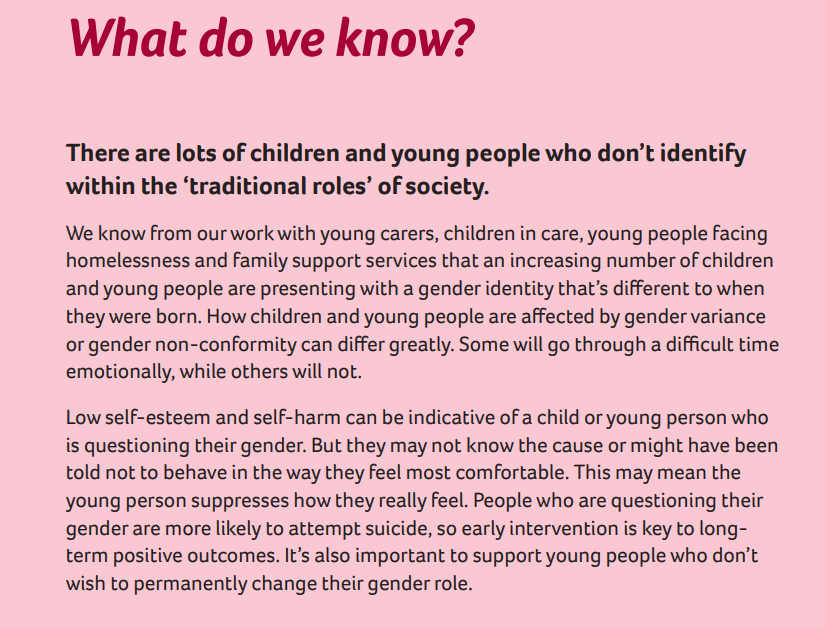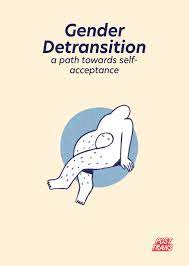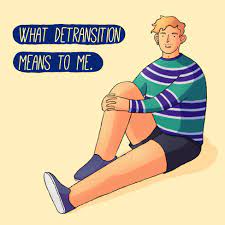Keira's case changes the landscape forever

There was nothing wrong with my body, I was just lost and without proper support. Transition gave me the facility to hide from myself even more than before. It was a temporary fix, if that.
Keira Bell
Today, the Court of Appeal has upheld the appeal of the Tavistock and Portman NHS Foundation Trust against the decision of the Divisional Court in Bell & Mrs A v Tavistock
Initially, this appears to be a blow. But a closer inspection reveals a very different picture.
The court has NOT passed judgement on whether a child can consent to puberty blockers, or at what age. The court has ruled on who decides if a child is Gillick competent, not if a child is Gillick-competent. Gillick competency can only be ruled by a clinician. This is a point of legal abstraction, not a point of consent itself.
“At the heart of Tavistock’s appeal is the submission that, in making the declaration, the Divisional Court departed from Gillick, which had established that children under 16 could make their own decisions if assessed individually as competent to do so by their treating clinician. Tavistock submits that the court “intruded into the realm of decisions agreed upon by doctors, patients and their parents, where the court had not previously gone.”
The ruling goes further:
“Clinicians will inevitably take great care before recommending treatment to a child and be astute to ensure that the consent obtained from both child and parents is properly informed by the advantages and disadvantages of the proposed course of treatment and in the light of evolving research and understanding of the implications and long-term consequences of such treatment. Great care is needed to ensure that the necessary consents are properly obtained. As Gillick itself made clear, clinicians will be alive to the possibility of regulatory or civil action where, in individual cases, the issue can be tested.”
In this regards, Keira Bell and Mrs A have still secured a significant win. It goes some way in tightening safeguarding for children, for young people and their care givers and it is a win for trans health care. This is a clear caution against a one size fits all pathway.
This ruling is also an acknowledgement that those expressing a trans identity deserve the same standard of evidence-based medicine as the rest of the population. This is a return to first principles; do no harm.
Concerns have been flagged by some activists that the original ruling undermined Gillick competence in regards to girls and young women accessing abortion and contraception. These fears are not realised, and have been widely debunked (Link). Yesterday's ruling that 12 year old children can consent to vaccines, for example, and today's ruling clearly contradict this position.
Gillick guidelines relate to both the age of the child and the complexity of the treatment, including the severity of known and unknown outcomes. This clearly differentiates it from issues around reproductive rights - where the cost/benefit is clearly known.
It is our view that the activist voices misrepresenting the original case re Gillick competence & Fraser guidelines, have only served to add more confusion and fear around the previous ruling. In doing so, jeopardising the welfare of young people by misrepresenting concerns around consent and the nature of potential medical pathways.
What still remains after today's ruling is the light shone on the concerning practices at the Tavistock. Including, but not limited to: the lack of longitudinal care and longitudinal data, the lack of data on cross-sex hormones, transitoning of gay children, the lack of curiosity about the correlation between ASD, trauma and transition. These concerns go back 15 years.
The worry with today's ruling is that prescribing puberty blockers will not go before a judge.
In a perfect world we would agree, Gillick competency should ideally be a clinical decision. However, In the context of the CASS review, the NICE review of puberty blockers, Dr Sonia Appleby V Tavistock, rising numbers of de-transitioners and reports of malpractice, removing this added layer of safeguarding is far from reassuring.
The history of medicine is, after all, blighted by malpractice and experimentation. From J Marion Simms through to the mesh scandal.
Reassuringly, the ruling acknowledges this. It refers specifically to a patient's right to litigation. This is cold comfort to those whose lives and health has been damaged. Most, I'm sure, would prefer to remain fertile rather than be compensated down the line.
'clinicians will be alive to the possibility of regulatory or civil action'
Considering the Court's concern around practices at GIDS, many of their professionals must be feeling uneasy. One whistleblower raised concerns with Dr Polly Carmichael, asking if she would be vulnerable to legal action. Carmichael's response was not to worry, it would be the NHS that is liable. Not so reassuring.
In Mandu Reid's recent speech, she referred to her concern around the sharp increase in girls being referred to GIDS.
Let's look at the stats.
In 2018/19 , 624 boys and 1,740 girls were referred. This represents a breathtaking 1,460% increase in referrals of boys and a staggering 5,337% increase in girls in less than a decade. The youngest child referred was 3.
To date, it seems that Mandu is the only leader of a political party willing to raise this issue.
In her speech last month, Mandu's words were moving:
'...there are real issues that need our serious attention, compassionate curiosity and intellectual rigour. Such as, what is driving the sharp increase in young girls being referred to gender identity services and how do we best support them'.
We welcome this statement from our Party Leader with open arms. We have raised this specific issue with the Party and via our caucus's submission to WESC and as well as our submission to the Dep Health & Social Care Women's Health Strategy
Furthermore, we take heart that Mandu's speech represents an intellectual curiosity from our Party's leadership. In this spirit, we hope WEP can use its platform to amplify the dedicated work of whistle-blowers, de-transitioners and feminist activists in order to start a respectful dialogue. We ask her to start this dialogue within the party, as well as cross party. After all, this crisis is cultural and political in nature and, as such, requires a cultural and political response.
Mandu's speech fell short of critiquing the organisations responsible for the recent cultural push of gender identity theory and transition. Lobbying organisations that - by design or accident - convinced a generation of gender non-conforming girls that their happiness lies in medical experimentation and body modification.
The Mermaids model of unquestioning social affirmation and social transition more often than not results in a pathway to medical transition; puberty blockers, cross sex hormones, mastectomy and a whole raft of surgeries. The list of known medical risks are lengthy and many are still unknown.
'I would rather a happy daughter than a dead son' is a much repeated mantra originating from the ITV series 'Butterfly'. This show was developed in consultation with child transition advocates Mermaids and pushed the idea that children - if not affirmed - were at risk of suicide.
Stonewall frequently cites the 45% suicide rate. This data is weak and based on two flawed surveys. But this is used to justify the fact that GIDS and CAMHS offer no alternative therapeutic treatment pathway. In doing so potential comorbidities are often not examined.
There is evidence of children being prescribed blockers after only one or two appointments at the Tavistock. Far from being a last resort treatment, blockers and hormones are the only treatment for children with complex histories and mental health conditions. What could go wrong?
Maybe the Tavi has fast-tracked children to alleviate the well-documented waiting lists. Often the NHS has been accused of transphobia for not having enough provision. The reality is that GIDS could not have planned for this huge uptick in referrals. So where did all these children come from?

Organisations like Stonewall, Mermaids and Allsorts are active in promoting the cultural acceptance of untested and untrue ideas; notions that sex can be changed, puberty can be paused, blockers are reversible and that all children have 'gender identities'.

Distressed children are told that 'trans' is the one size fits all diagnosis and transitioning the cure. They take this message into schools, youth groups and the NHS.
As this glossy toolkit states, 'a lack of experience shouldn't stop you from offering support'. Eek.
By support they mean accept 'wrong body' narratives and uncritical affirmation.
Any deviation from affirmation, we are told, does great harm. CAMHS, teachers and parents are advised that any talking therapies or exploration around the origin of a child's distress (eg CSA, ASD, family breakdown, bereavement, involvement of care services, homophobia) is perceived as conversion therapy.
This advice deprives vulnerable, in need children of appropriate individualised and person-centred care. We cited this particular booklet out of the hundreds of examples as it is aimed specifically at those working with very vulnerable, traumatised and socially excluded children.
Source: Mermaid's Resources for Professionals: Gender Identity Guide
The CAMHS care pathway also requires that, if a referred child expresses issues around identity, they should be discharged and placed on the GIDS waiting lists. This leaves the (often distressed) child in limbo- discharged by CAMHS, and on a waiting list of years for the Tavistock.
Place this in the context of a child mental health crisis, under-funding of CAMHS, sexual assaults in schools, the harms of social media on girls, the proliferation of smartphone porn, the harms of gender stereotypes and we have a problem. But these societal problems are complex and disempowering.
TikTok and YouTube vloggers offer children an antidote. A simple diagnosis, with an airbrushed solution. It is packaged in pretty colours and comes with promises of a community and empowerment. It is a perfect storm - and the casualties are mostly girls.
Dr David Bell's (Consultant Psychiatrist and previous Tavistock staff governor) 2018 report evidenced extensive concerns that medical practices at GIDS are being driven by ideological lobbying rather than evidence-based medicine. He is one of many distinguished whistle-blowers at GIDS. Although this news is unsettling, we should not be shocked. Evidence-based medicine is often sacrificed at the altar of ideology, especially when it comes to the bodies of women and girls. Let recent events in Texas and Poland be a sobering reminder of that.

This is echoed by Stephanie Davies-Arai:
'In our intervention, we submitted evidence that the GIDS operates within a core illogicality: a belief that biological sex is irrelevant to being a boy or being a girl, while providing a service that is predicated on the existence of, and ability to define, a ‘boy body’ and a ‘girl body’ that children might move between through medication and subsequent surgery. This is of course an impossibility, but it is an outcome that children are led to believe is possible'...
Stephanie Davies-Arai
Transgender Trend
Earlier this year, the Swedish Government announced it was ending the use of all puberty blockers and cross-sex hormones on minors (Link), and there will be more to follow.
The NHS announced the CASS review. Its terms of reference acknowledge that GIDS practice has changed drastically in recent years:
In recent years there has been a significant increase in the number of referrals to the Gender Identity Development Service, and this has occurred at a time when the service has moved from a psychosocial and psychotherapeutic model to one that also prescribes medical interventions by way of hormone drugs. This has contributed to growing interest in how the NHS should most appropriately assess, diagnose and care for children and young people who present with gender incongruence and gender identity issues.
Meanwhile, there is much money to be made from medical tourism. India - once the domain of 'tits and teeth' - is now offering a raft of sex reassignment surgeries. As the Thai industry has become more regulated, India had been quick to develop theirs. Vaishnaivi Sundar, Indian feminist and film maker (Lime Soda Films: But What Was She Wearing?) published a devastating exposé, 'Dysphoric; Fleeing womanhood like a house on fire' - a must watch.
Returning to Mandu's speech, compassionately-curious academics and activists like Dr Heather Brunskell Evans, Vaishnaivi Sundar, Sue Evans, Prof Michelle Moore, Stephanie Davies Arai, Prof Michael Biggs, Sasha Ayad, GNG Centric, Lisa Marchiano, (to name only a few) have been addressing this topic with intellectual rigour for sometime.
Because of their work (often in the face of hostility), we can hit the ground running in addressing this crisis. The evidence is there, WEP just needs to listen to it.
Dr Heather Brunskell-Evans was amongst many women apparently actively discouraged by WEP to discuss this topic at all. Despite her credentials and academic body of work, when she expressed her evidenced concerns a small and extreme section of the Party called for her removal.
Had WEP supported Heather - and other women in their midst expressing concerns - to explore this critical area of enquiry, WEP could have been ahead of the curve in addressing these serious and pertinent issues. Our Party's political platform and name would have embedded these concerns within the cultural discourse. It is painful to ponder how the Women’s Equality Party could have played a role in reducing harm and perhaps even have sped up this process of review - now being undertaken by the NHS - if we had just been braver.
We hope that the censuring attitude towards members raising concerns clearly from a place of 'intellectual rigour and compassionate curiosity' is abandoned and far behind us now. So thank you, Mandu, for raising this.
But, beyond the Party, the facts remain that girls and young women like Keira Bell are being directly harmed right now. A growing community of de-transitioned young people are being left with no support and no resolution to their chronic and permanent side-effects.
Anyone rejoicing in today's ruling should think twice about that before they celebrate.
WEP must seek to address these issues, and quickly.
Girls' bodies are on the frontline of the debate around gender identity -
whether it is young lesbians finding themselves infertile and without sexual function, or women and girls losing the dignity and safety of their single-sex spaces.
As JK said, #ThisIsNotADrill
For those readers inevitably affected by these issues:
Detransition is a beautiful booklet promoting body positivity and self-acceptance. It is available to order or download as a PDF from here.
Please see Transgender Trend for resources to send to schools and links for further information and support groups.
For professionals wanting additional guidance and best practice, please see this PDF guide published today by the Evidence Based Social Work Alliance (EBSWA) and Transgender Trend 'When can a child consent to medical transition'





Comments